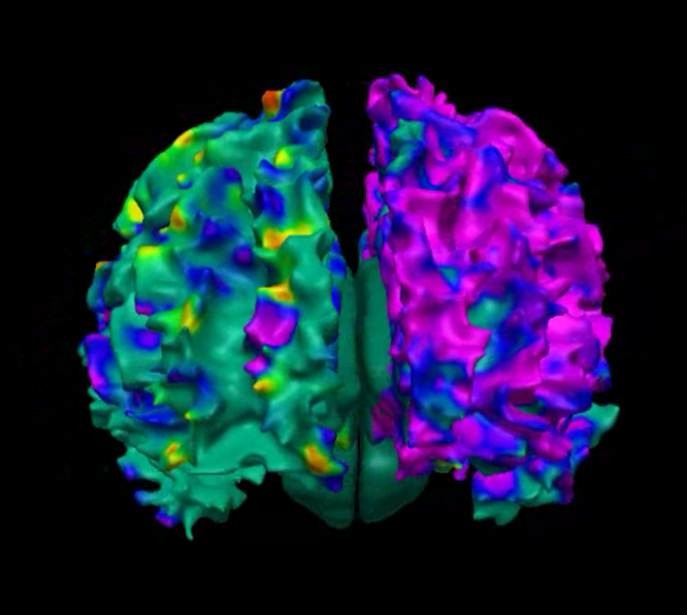A powerful relationship exists between prenatal exposure to a common pollutant and disturbances in parts of the brain that support information processing and behavioral control.
The findings were made by researchers at the Institute for the Developing Mind at Children’s Hospital Los Angeles (CHLA) and colleagues at Columbia University’s Center for Children’s Environmental Health.
They studied 40 children from before birth until 7 to 9 years of age as part of a large community-based cohort. The study was published online March 25 by JAMA Psychiatry.
Neurotoxic polycyclic aromatic hydrocarbons (PAH) are ubiquitous in the environment, in the home and in the workplace. Sources of exposure include emissions from motor vehicles, oil and coal burning for home heating or power generation, wildfires and tobacco smoke.
PAH readily crosses the placenta and affects an unborn child’s brain; previous animal studies had shown that prenatal exposure impaired the development of behavior, learning and memory.
— Debra Kain


